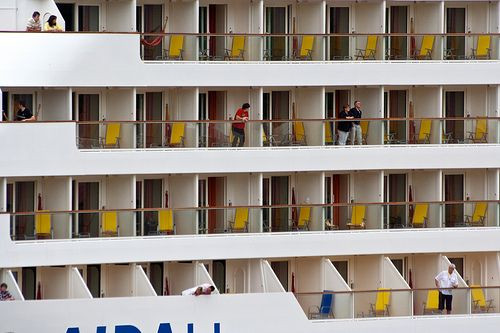6-Year-Old Boy Drowns In Carnival Cruise Pool On Nobody’s Watch: Should Cruise Ships Have Lifeguards?

As the Carnival cruise ship, Victory, faced the final day of its four-day tour in the Caribbean on Sunday, a young boy accidentally drowned in one of the ship’s swimming pools, CBS reports.
Six-year-old Qwentyn Hunter of Winter Garden, Fla., was swimming with his 10-year-old brother when the incident occurred. Passengers pulled a motionless Hunter from the pool and tried to resuscitate him, but he was pronounced dead on the scene. The incident isn’t the first for swimming accidents involving children — a Disney cruise line faced a drowning early last year and a near drowning earlier this year — but, curiously, cruise ships commonly opt out of hiring a lifeguard to watch their pools.
Carnival spokesperson Joyce Olivia said that this was the first known drowning to take place on the company’s cruise lines.
"Carnival extends its heartfelt sympathy to the family during this very difficult time,” the company said in a statement. “The company's CareTeam is providing assistance and support.”
Hunter had been active in working with a talent and modeling agency for the last six months. The agency’s owner, Jeff Callender, described the young boy as a “sweet kid, very precocious.”
"He had a bright future in entertainment. The thing I found most beautiful about him,” Callender told CBS, was that “he knew how to move his ears.”
Drowning In Liability
Cruise ships are a different kind of beast than beaches or public swimming pools. They’re essentially floating hotels. They have a lot of moving parts, enormous staffs, and so much going on all at once that maintaining a watchful eye over each component becomes costly. Cases like Qwentyn Hunter’s are admittedly rare — Carnival cruise lines alone service 4.5 million passengers a year, and despite the majority being adolescents, Olivia calls Hunter’s case a first. So, is the cost worth it? Are lifeguards on cruise ships non-essential?
Disney argues the problem is a non-issue. A 2008 safety report claims the entertainment giant trains nearly 1,200 lifeguards a year for the three arms of its operations — Disneyland Resort, Walt Disney World Resort, and Disney cruise lines. However, the report does not specify the breakdown of how many lifeguards get allocated to which arm.
“Our lifeguards must complete a thorough training program that exceeds most U.S. standards and includes both a water-skills test and up to 24 hours of basic training in water rescue techniques, CPR, basic first aid, oxygen administration and the use of AEDs,” the report states. “After completion of basic training, lifeguards must also perform four hours of in-service training each month, undergo eight hours of recertification training every year and participate in frequent unannounced audits by one of the world's premier aquatic safety service providers.”
The presence of a well-trained lifeguard would certainly seem welcome. Roughly 175,000 children around the world die each year from drowning, according to the 2008 World Report on Child Injury Prevention. In the U.S., one in five people who drown is under the age of 14. These statistics are set against an industry that, in one fiscal quarter alone, sees 2.8 million people on 1,075 North American cruises.
Miami-based maritime attorney Jim Walker argues the balance between parent responsibility and corporate responsibility skews unfairly toward the parents.
“Cruise lines like Disney have legal responsibility to parents and children on Disney cruise ships. A ‘no lifeguard on duty’ sign does not legally exonerate a cruise line, or a hotel, or an amusement park,” writes Walker on his blog, Cruise Law News reports. “It simply raises the issue whether the sign was legally conspicuous enough to provide an effective warning to the parents.”
Cruise lines, like Walker explains, typically forego a lifeguard for a sign that directs parents to keep an eye on their children, as no lifeguard will be present. "We do not have lifeguards on duty at our pools," Carnival spokeswoman Jayme Weber told the Los Angeles Times. "Parental supervision is required for children under 13."
At the time of Hunter’s drowning, Weber said, there was in fact a parent present. But to Walker, the ongoing debate is larger than mere parent oversight.
"Yes, parents should have responsibility for watching their children,” Walker told the Associated Press in an e-mail, “but at the same time cruise corporations have a duty to watch over the parents and children and provide a reasonably safe place for them to have a family vacation."



























